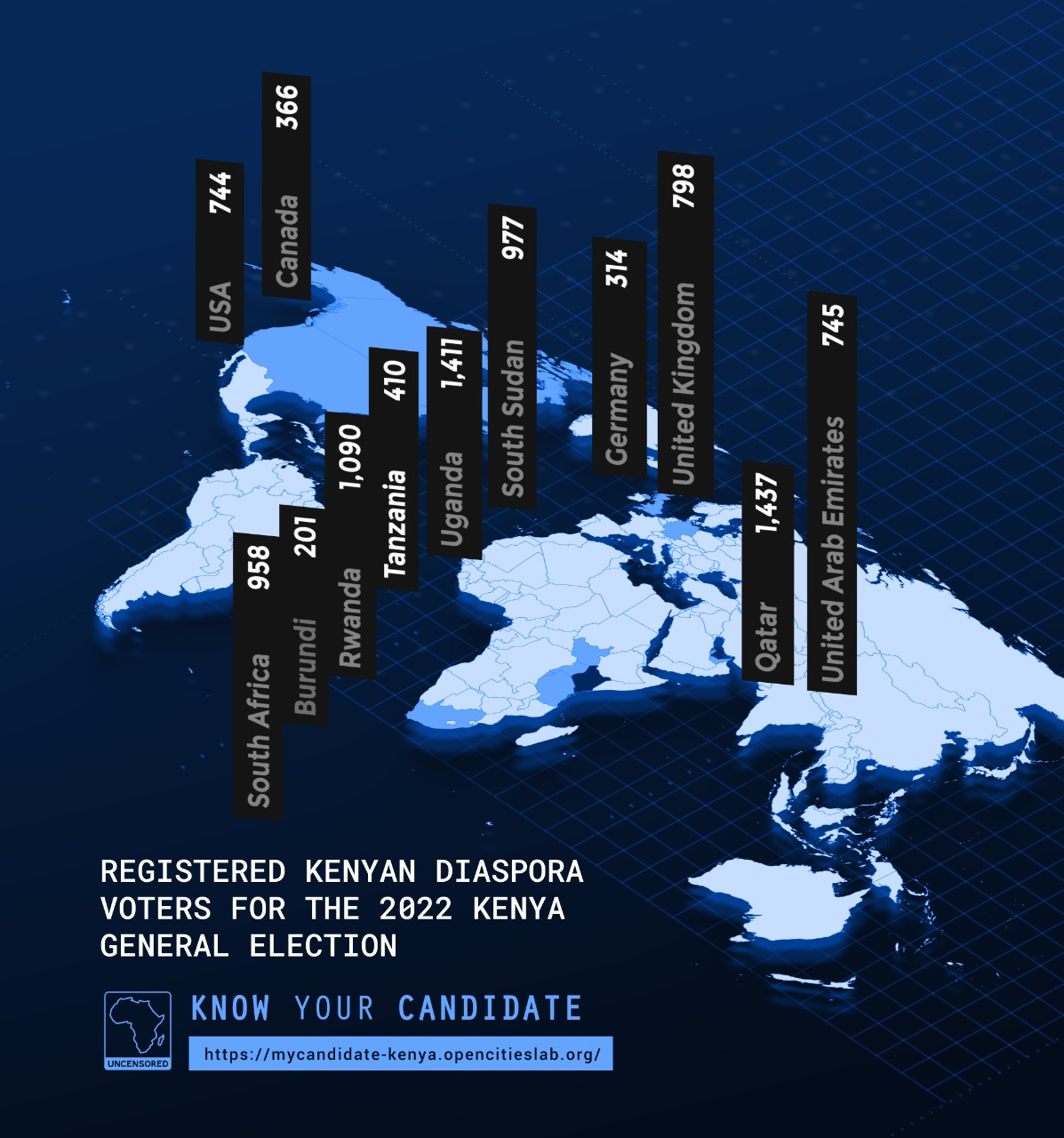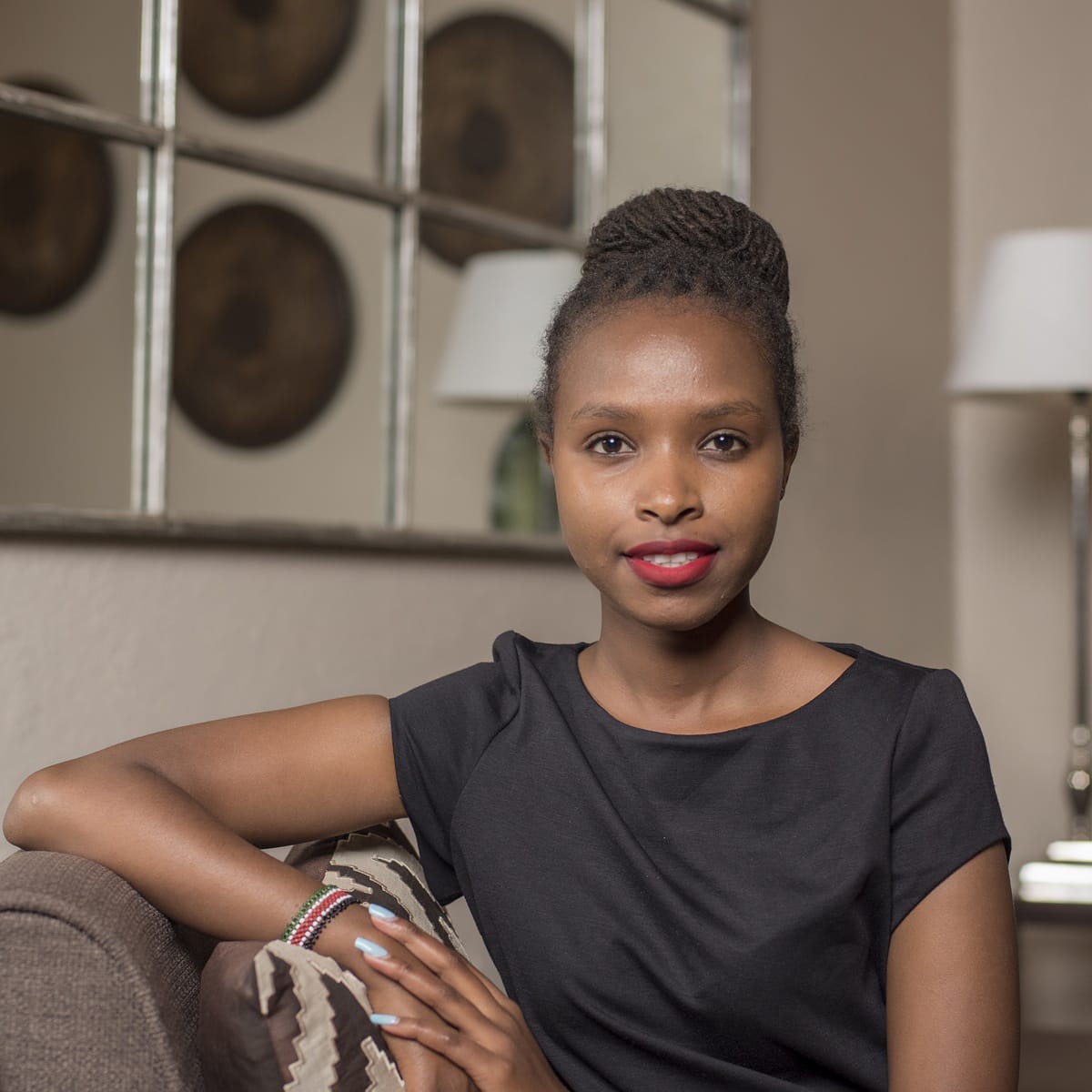So, just who is running for office in your area?
Here's a dizzying statistic: there are 15,082 candidates cleared to vie for various elective posts in Kenya's upcoming election. Most of these aspirants are vying to become members of county assembly in wards across the country, but every elective post is hotly contested. So, the question begs, how many of the candidates running for office in your area do you know? What do they stand for? Are they in it for the salary or to serve the public? The first step in figuring these and other questions out is knowing who is running! That's why we teamed up with ODIPODEV and Open Cities Lab to create a website where you can find all of this information. The site is called "My Candidate" and has been live for the past two weeks. Read on for what you can find on the platform, and make sure you check out the site before going to the polls on August 9th!
The election is fraught with all sorts of propaganda as each candidate and political formation fights for every inch of advantage leading up to the poll. At Africa Uncensored, we are drawing back to discuss the issues that they should care about, hopefully to act as a reminder to everyone that the decisions at the poll are crucial. We've launched "The Big Picture" a program seeking to build your knowledge of the issues that define our time; we're also fact-checking our way through all the misinformation out there on the show! I've got a brief on this week's episode in this edition of the newsletter, make sure you check that out.
We've also got incredible pieces of journalism prepared by our team, including our in-depth series, "KURA". This week, Joy Kirigia walks us through the episode she produced.
What are you waiting for? Dive in!
My Candidate and why you should use it.
By Uri Ludger
Presidential and Gubernatorial debates are a conscious effort by the media to provide a platform to aspirants for the premier public office in the land to present their plans to the public and have the people decide on who to vote for. However, the same visibility hasn't been afforded to other aspirants, even though this is a general election in which Kenyans will decide who becomes their Member of Parliament (MP), Governor, Senator, Woman Representative/County MP and Member of the County assembly (MCA). In all likelihood, the ordinary Kenyan will not have easy direct access to the President or Deputy President, but will instead turn to their local MCA or MP seeking justice, aid and audience. And yet, in a common occurrence that voters will arrive at the pole on election day without full knowledge of who the aspirants for these positions are, and end up voting due to name familiarity, party affiliation, among other trivial indicators. A functional democracy is not attainable if the electorate is not informed enough to make an appropriate choice for who their leaders should be.
My Candidate therefore comes in as an attempt to fill the information gap. In collaboration with OdipoDev and Open Cities Lab, we launched the My candidate platform as a means through which the electorate can have easy access to information about who is running in their ward, country etc. All one must do is key in a location of interest, and a comprehensive list, derived from the IEBC, is generated showing who is running for President, Deputy President, Member of Parliament, Senator, County Governor, Women Rep and Member of County Assembly. One can also select a candidate to have access to all publicly available information about them via an automated Google search.
Who are you voting for? Do you know your candidates? Log into My Candidate and make your choice. Let your vote count!
Also, what Countries are Kenyans in Diaspora Voting From? Wambui Mwaura looked into the IEBC records and wrote about it here.
WHAT'S THE BIG PICTURE ON THE FUTURE OF WORK?
There was a striking story in Kenya's Daily Nation newspaper on the 18th of July. The Teacher's service commission has been advertising teaching jobs, looking to fill a substantial amount of vacancies, 14,000 to be exact. If you think that's a big number, the number of applications was staggering; over 250,000 people applied for 14,000 jobs. That is 17 applicants for every job! This story truly put into perspective just how dire the unemployment situation is in Kenya, and it wouldn't be surprising if other African countries are in the same situation. So, how do you fix unemployment? What is the future of work here? On this week's episode, we hosted Dr. Bitange Ndemo, a former Permanent Secretary in the Ministry of Information and Communication and a well respected lecturer and researcher. He's recently secured a new job as Kenya's ambassador to Belgium, but had some choice words for the manifesto promises speaking to job creation from Kenya's main political formations.
This episode will premier on our YouTube Channel on Wednesday; look out for it, watch and share!
Fake Polls: The Bandwagon, the Underdog, the Boomerang and the Strategic Voting effects they may have on the electorate
Algorithmic amplification is the new technique used to get public views and opinions on social media. Fact-checkers at Piga Firimbi continuously debunk fabricated polls such one fact-checked here.
Online polls have gained popularity in Kenya during this election period and have become a notable tool for gauging public viewpoints to understand who is popular at the ballot box. This plays a major role in the modern democratic processes online.
Polls are the contemporary way of engaging the public as they are very fast and easy to use, making them more and more prominent. It only takes a few seconds to take part in an online poll, therefore having a lot more responses from the public because of the little effort required.
They focus on an objective question and the results mainly reflect the public's opinions and feelings. In this case, an overview of the public's perspective can be achieved.
Online polls are integrated features and there are various social media platforms with these built-in polls. Twitter and Instagram are one of the many that have a polling feature.
Twitter poll is done straight from the timeline while Instagram has the feature in the stories application whereby it only offers two response options but offers other features like the ability to include images and gifs.
Unfortunately, these polls have several effects on voting patterns and we have several theories that portray how they influence public opinion.
To start with, is the Bandwagon effect which is the winning side mentality where voters who think a particular candidate will win the election may end up voting for that specific candidate. This basically means that if a candidate is winning in the polls then he/she will gain additional support from the voters and vice versa.
In addition to this, we have the underdog effect which is the sympathy vote. This means that if the candidate is losing in the polls then the candidate will gain some sympathy votes to counterbalance their loss unlike the boomerang effect which looks into the confidence in your candidate, and lastly the strategic voting effect that basically compels one to vote logically.
Depending on the final results, the main benefit here is that they drive these politicians to focus on the real picture of accurate measures on public wants and needs which is beneficial to the public whereas for the politicians they use the outcomes of the results to up their game as they strengthen their campaigns depending on the public's views.
Undoubtedly, these polls are one of the easiest methods of assessing the public's views but with the benefits comes the disadvantages.
With Kenya's upcoming elections, Fake news and disinformation is increasingly being fought online. Polls are generated on various platforms trying to put their preferred candidates in the lead. This brings in the role of the media in terms of fact checking as they try to verify genuine polls from doctored ones.
Also, online polls are only a random reflection of opinions that attract and draw anyone who wants to participate.
Joy Kirigia on Producing KURA Coded
The one thing about journalism is that you just never know what you will get or come across when you take on a story. But, we always put together our goals for every story. Sometimes we tick all the boxes and sometimes, we don’t.
However, speaking more specifically about one of our recent publications, Coded, a documentary focusing on words and phrases used by politicians and their impact; as a team, we did our best to come up with an objective story but it is the characters that powerfully drove it. They not only let us in by genuinely sharing their truths, their pains and for some, their hopes about Kenya's politics and elections but also exposed a reality about them that we have often grappled with. And language is at the centre of it all.
While the story has had a relatively positive reception a week after publication, my only hope is that it doesn’t just become another story we watch and move on. I hope that it shifts some of our perceptions and empowers us as a people, as voters to make better decisions with our votes.
Watch Joy Kirigia’s piece, KURA Coded here.
Cheers.
Editorial Director: John-Allan Namu
Assignment Editor: Sam Munia
Contributors: John Allan Namu, Sam Munia, Uri Ludger, Wambui Mwaura, Alice Beryl and Joy Kirigia.
Social Media Manager: K Muraguri G
Before you go…
Thank you for your support in reading and sharing our content! We work very hard on it and continue to go to great lengths to deliver independent hard-access journalism and insightful content. If you want to support our work, become a Patreon of Africa Uncensored today! Just follow the prompts in this link!








